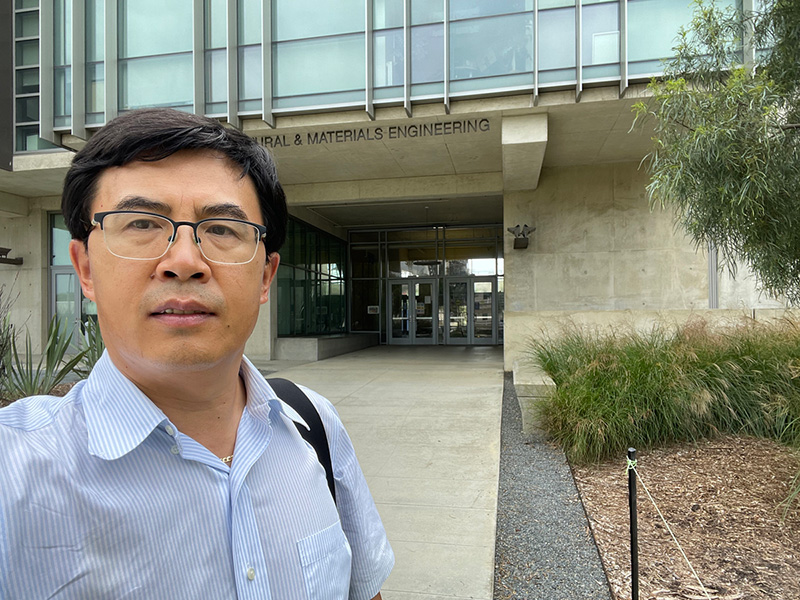
Faculty Benefit from Development Leave Program, Now Accepting Applications for 2023-24
Jeremy Slack, Ph.D., associate professor of geography, spent the fall 2022 semester as a visiting faculty member at the Universidad Iberoamericana Puebla in Mexico, where he studied the buildup of immigration enforcement infrastructure throughout Mexico. During his time in Puebla, he pursued field research and writing and deepened his relationships with colleagues in the region.

He is one of 10 UTEP faculty members selected to participate in the 2022-23 faculty development leave program, which allows them to take a semester or a year off of teaching duties to pursue research and deepen collaboration in their area of expertise.
“It’s a great way to rethink your research, change things up and do things you wouldn’t be able to do otherwise,” Slack said of his semester away. He added that the experience also enriches UTEP through collaboration with scholars at other institutions, new research grants and the opportunity to recruit students.
XiuJun “James” Li, Ph.D., professor of chemistry and biochemistry, took advantage of his development leave this fall to expand his research on biosensors that use micro fluids to diagnose diseases like whooping cough, meningitis, Hepatitis B and C, and COVID-19. The application of these technologies is particularly important in developing countries where high-tech lab equipment may not be readily available to all. While working at the University of California San Diego, Li collaborated with experts in the field of wearable biosensor technology and applied their research findings to his own work.
“It was a time to recharge, organize my data and think through my next steps,” he said.
Twenty faculty members are currently on leave or have completed the program, now in its third year. Their studies range from improving access to and engagement in computer science among K-12 students, to understanding how bilingual individuals communicate, to developing medications to treat cancer and composing music for film and interactive media.
“This leave permits work that faculty could never complete while managing their regular schedules,” said John Wiebe, Ph.D., UTEP Provost and Vice President for Academic Affairs. “They have the opportunity to deepen their expertise, learn new methodologies, travel to study with renowned artists or scholars, and build professional networks. These activities can push their careers to the next level, and benefit students and colleagues alike.”
The leave application for the 2023-24 school year is currently open and will close on January 15, 2023. Faculty members interested in learning more about the development leave program can find more information at www.utep.edu/provost/faculty/professional-development.html.
Last Updated on December 20, 2022 at 9:30 AM | Originally published December 20, 2022
By Hannah Hollandbyrd UTEP Marketing and Communications
